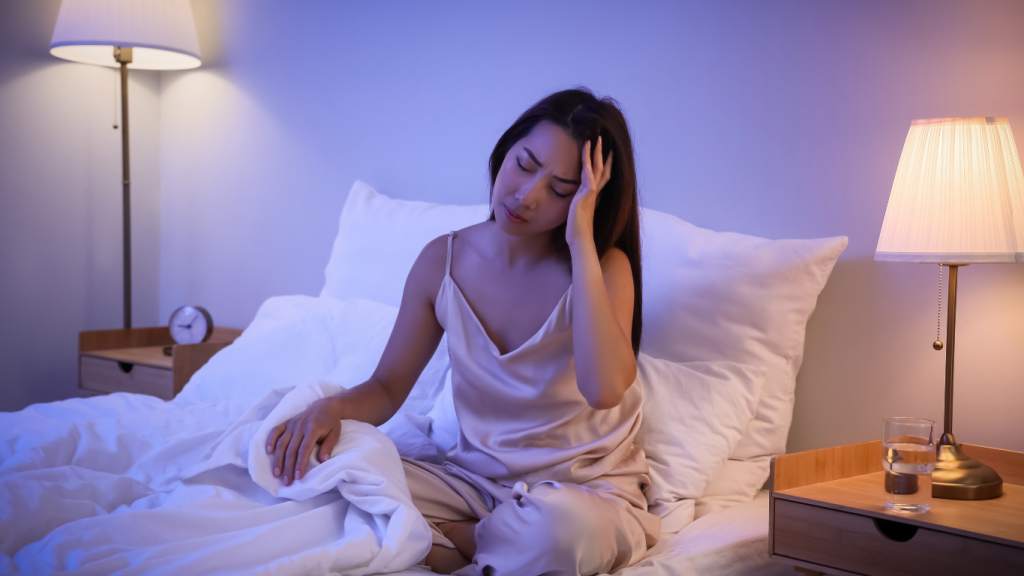You’ve been dragging yourself through the day, surviving on caffeine, and feeling “wired but tired” by the time your head hits the pillow. You may even be getting a full 8 hours, but you wake up feeling like you barely slept at all.
This is one of the most common complaints we hear at the Health and Wellness Hub. Sleep isn’t a luxury; it’s the foundation of your health, mood, and energy.
This expert guide provides the direct answers you need to understand your sleep and reclaim your energy.

The Core Problem: Quality vs. Quantity
Many people mistake time in bed for quality sleep. Eight hours of fragmented, light, or interrupted sleep is far less restorative than six hours of deep, consolidated sleep. Your body needs to cycle through Deep Sleep (for physical repair) and REM Sleep (for mental processing).
The most common culprits for “8 hours of bad sleep” are:
- Chronic Stress: High cortisol (the stress hormone) prevents you from entering and staying in deep sleep.
- Late-Night Snacking/Alcohol: Your body has to focus on digestion instead of repair, which fragments sleep.
- Hidden Disruptors: Subtle blue light from electronics or an inconsistent schedule can keep your brain from ever fully “shutting down.”
What is “Sleep Hygiene” (And Why It Works)?
“Sleep hygiene” is simply a set of habits that train your brain for sleep. It’s not a quick fix; it’s a routine. Your brain loves consistency. When you create a predictable wind-down routine, you are sending powerful signals to your brain that it’s time to start producing melatonin (the sleep hormone) and prepare for rest. It is the single most effective, long-term strategy for beating most common sleep problems.
The Action Plan: How to Fix Your Sleep
You can take immediate, practical steps to improve your sleep quality.
Create a “Buffer Zone” You must create a 30-60 minute period before bed with one critical rule: zero screens. The blue light from your phone, TV, or tablet is the #1 enemy of sleep. It tricks your brain into thinking it’s still daytime, which stops melatonin production. Swap your phone for a real book, listen to calm music, or do light stretching.
Handle Late-Night Eating Eating before bed is especially bad if it’s a heavy meal or sugary snack. Digestion is an active process that raises your core body temperature, which is the opposite of what your body needs to do to fall asleep. That snack can also spike your blood sugar, causing you to wake up a few hours later when it crashes. If you must eat, make it a small, protein-focused snack (like a few almonds) at least an hour before bed.
What to Do When You Wake Up at 3 AM This is the most frustrating part of insomnia, often caused by a cortisol spike. Here is the most important rule: Do not lie in bed “trying” to sleep for more than 15-20 minutes. You will only train your brain to associate “bed” with “anxiety.” Instead, get out of bed. Go to another dimly lit room (no phone!) and read a boring book or meditate until you feel sleepy again, then return to bed. This breaks the anxiety cycle.
The Environment: Building a Sleep Sanctuary
Your brain needs three clear signals to initiate sleep. Your bedroom must be:
- Cold: Your body’s core temperature needs to drop to initiate sleep. The ideal range is 65-68°F (18-20°C).
- Dark: Use blackout curtains. Cover or remove any small blinking lights from chargers or electronics. Darkness is the #1 trigger for melatonin.
- Quiet: A sudden noise can pull you out of a deep sleep cycle. If you live in a noisy area, a white noise machine or earplugs can be a game-changer.
Are Naps Helping or Hurting Your Sleep?
It depends. Naps can be a great tool if they are short (20-30 minutes) and taken early in the day (before 2 PM). This can boost your afternoon energy. However, a long nap (60+ minutes) or one taken late in the afternoon will “steal” your “sleep drive,” making it much harder for you to fall asleep at night.
Stop Waking Up Tired. Start Waking Up Refreshed.
Your body is designed to heal. Quality sleep is your body’s non-negotiable repair cycle. By understanding why you’re struggling, you can start implementing these small, consistent changes to reclaim your nights and your energy.
Explore our Hub for more expert guides on nutrition, mindful movement, and stress relief. Have a question we didn’t answer? Get in touch with our team.
